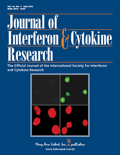
NATURE REVIEWS IMMUNOLOGY
Scope & Guideline
Your Premier Source for Immunology Breakthroughs
Introduction
Aims and Scopes
- Immunological Mechanisms and Pathways:
The journal extensively covers the molecular and cellular mechanisms underlying immune responses, including antigen presentation, signaling pathways, and the role of different immune cell types. - Clinical Applications of Immunology:
Research articles often explore the clinical implications of immunological findings, particularly in the context of immunotherapy, vaccine development, and autoimmune diseases. - Interdisciplinary Approaches:
NATURE REVIEWS IMMUNOLOGY promotes interdisciplinary research, incorporating insights from fields such as microbiology, genetics, and bioinformatics to enhance the understanding of immune responses. - Emerging Technologies and Methodologies:
The journal highlights innovative techniques in immunological research, including single-cell analysis, spatial biology, and advanced imaging methods, which are crucial for understanding complex immune interactions. - Public Health and Disease Prevention:
There is a consistent focus on the role of immunology in public health, particularly in understanding infectious diseases and developing vaccination strategies.
Trending and Emerging
- Microbiome-Immune System Interactions:
There is an increasing emphasis on understanding the complex interactions between the microbiome and the immune system, particularly regarding how these interactions influence health and disease. - Immunotherapy Innovations:
Research focused on novel immunotherapeutic strategies, including CAR T-cell therapy and checkpoint inhibitors, is on the rise, showcasing advancements in cancer treatment. - Personalized Medicine in Immunology:
The trend towards personalized medicine is gaining traction, with more studies exploring how individual variability in immune responses can inform tailored treatment approaches. - Neuroimmunology:
The intersection of neuroscience and immunology is emerging as a critical area of research, with studies investigating how immune responses affect neurological conditions and vice versa. - Role of Inflammation in Chronic Diseases:
There is a growing interest in the role of inflammation in various chronic diseases, highlighting the importance of understanding immune dysregulation in conditions like obesity and metabolic syndrome.
Declining or Waning
- Traditional Vaccine Development:
The focus on conventional vaccine development strategies appears to be waning as the field shifts towards more innovative approaches, such as mRNA technology and personalized vaccines. - Basic Immunology without Clinical Relevance:
There is a noticeable reduction in papers solely dedicated to foundational immunological principles without a direct clinical application, as the journal increasingly prioritizes translational research. - Monoclonal Antibody Development:
Research specifically centered on monoclonal antibodies as standalone treatments is declining, possibly due to the saturation of this field and the emergence of combination therapies. - Static Models of Immune Responses:
Research employing static or simplistic models to study immune responses is becoming less common, as there is a growing emphasis on more complex, dynamic systems that better mimic in vivo conditions. - Theoretical Immunology:
Papers focused purely on theoretical aspects of immunology without experimental validation are less frequently published, reflecting a trend towards more empirical, data-driven research.
Similar Journals

AIMS Allergy and Immunology
Exploring Breakthroughs in Allergy ResearchAIMS Allergy and Immunology is a prestigious open access journal dedicated to advancing knowledge in the fields of allergy and immunology. Published by the American Institute of Mathematical Sciences (AIMS), this journal provides a vibrant platform for researchers, practitioners, and scholars to share groundbreaking findings and insights. Recognized for its commitment to disseminating high-quality research since its inception in 2017, AIMS Allergy and Immunology contributes significantly to the understanding of complex immunological mechanisms and allergic responses, thus playing a pivotal role in enhancing clinical practices and therapeutic strategies. With its ISSN 2575-615X, the journal aims to facilitate a robust exchange of ideas and promote collaboration within the scientific community. Researchers and practitioners are encouraged to access the latest studies and reviews, which are all freely available online, ensuring that vital information reaches a global audience without barriers. Together, we can tackle the challenges posed by allergies and immune disorders through rigorous scientific inquiry and innovation.

Cellular & Molecular Immunology
Unraveling the Mysteries of ImmunityCellular & Molecular Immunology is a prestigious peer-reviewed journal published by the CHIN SOCIETY IMMUNOLOGY. As a leading journal in the fields of immunology and infectious diseases, it proudly holds a Q1 designation across multiple categories, including Immunology, Allergy, and Medicine (Miscellaneous), reflecting its commitment to excellence and impactful research. With an ISSN of 1672-7681 and an E-ISSN of 2042-0226, the journal has been essential reading since its inception in 2004, continuously gathering insights from cutting-edge studies. It ranks impressively within Scopus, with positions in the 7th, 8th, and 9th percentile in relevant categories, establishing it as a cornerstone for researchers, clinicians, and students alike. The journal offers an extensive range of original research articles, reviews, and clinical studies, ensuring that readers stay at the forefront of immunological discovery. Whether you are interested in basic immunology, infectious diseases, or evolving therapies, Cellular & Molecular Immunology serves as an invaluable resource for advancing your knowledge and engagement in this dynamic field.

JOURNAL OF INTERFERON AND CYTOKINE RESEARCH
Pioneering Insights into Interferon and Cytokine BiologyJOURNAL OF INTERFERON AND CYTOKINE RESEARCH, published by Mary Ann Liebert, Inc, stands out as a pivotal resource in the fields of immunology, virology, and cell biology, providing comprehensive insights into cytokine functions and their roles in immune responses. With ISSN 1079-9907 and E-ISSN 1557-7465, the journal aims to disseminate innovative research that advances our understanding of interferon and cytokine biology, a crucial aspect for developing therapeutic strategies against various diseases. Covering a broad scope of research from 1995 to 2024, it boasts a respectable impact factor within its category quartiles, ranking Q2 in Medicine (miscellaneous) and Q3 in the domains of Cell Biology, Immunology, and Virology as of 2023. While it does not provide open access options, the journal remains essential for academics, researchers, and professionals dedicated to exploring the complexities of immune signaling pathways and their implications for health and disease. The journal’s consistent contribution to scientific discourse underscores its importance in elevating query-driven studies to foster advancements in biomedical science.

Journal of Immunology Research
Advancing Immunology: Your Gateway to Groundbreaking ResearchJournal of Immunology Research, published by HINDAWI LTD, stands as a pivotal open-access journal in the realm of immunology, with a particular emphasis on advancing knowledge in both fundamental and applied aspects of the field. Since its inception in 1990, the journal has committed to the dissemination of high-quality research, earning a respectable impact factor that reflects its significance. Based in Egypt, it provides a platform for researchers from around the world, showcasing innovative studies and reviews that contribute to the understanding of immune system mechanisms. Its 2023 rankings place it in the Q2 category for Immunology and Allergy, and Q1 in the broader category of Medicine (miscellaneous), indicating a strong reputation among its peers. Through its open-access model, the journal promotes wide accessibility of cutting-edge research, catering to researchers, professionals, and students alike. With ambitions that converge through 2024, the Journal of Immunology Research continues to be an essential resource for those seeking to explore the forefront of immunological science.

JOURNAL OF IMMUNOLOGY
Championing Cutting-edge Immunological StudiesWelcome to the JOURNAL OF IMMUNOLOGY, a prestigious publication associated with the American Association of Immunologists and dedicated to advancing the field of immunology. With a rich history dating back to 1945, this journal is renowned for its high-impact research, evident in its notable 2023 Q1 rankings in both Immunology and Allergy, as well as its strong positions in Scopus rankings—Rank #68 in Immunology and Allergy and Rank #79 in Immunology and Microbiology. Although it operates on a subscription basis, its commitment to publishing cutting-edge studies ensures that it remains a vital resource for scientists, healthcare professionals, and students alike. As the journal continues to pave the way for innovative research and breakthroughs in immunological science, it facilitates a platform for dialogue and discovery among researchers and practitioners across the globe.

IMMUNOLOGIC RESEARCH
Pioneering Discoveries in Immune Function and DiseaseIMUNOLOGIC RESEARCH, published by Springer, is a prestigious journal dedicated to advancing the field of immunology. Since its inception in 1986, this journal has provided a vital platform for researchers, practitioners, and students to share groundbreaking studies and innovative findings that influence clinical and laboratory practices in immunology. With an impact factor that reflects its importance, being ranked in the Q2 category for the year 2023 and positioned at 98th out of 236 in Scopus rankings for Immunology, it is recognized among its peers for the quality of its publications. The journal emphasizes rigorous peer review and encourages submissions across a diverse range of topics including but not limited to immune responses, vaccine development, and disease mechanisms. Though it does not currently offer open access, its insightful articles remain crucial for professionals seeking to stay at the forefront of immunological research. Designed for a broad audience within the scientific community, IMMUNOLOGIC RESEARCH continues to foster discovery and discussion that shapes our understanding of immune function and its implications for health and disease.

HUMAN IMMUNOLOGY
Pioneering Insights into Immune ResponsesHUMAN IMMUNOLOGY, published by Elsevier Science Inc, serves as a critical platform for disseminating research in the fields of immunology and allergy, as well as various aspects of miscellaneous medicine since its inception in 1980. With an ISSN of 0198-8859 and E-ISSN 1879-1166, this journal is pivotal for researchers and practitioners looking to advance their understanding of human immune responses and related conditions. The journal currently holds a respectable position within its field, as highlighted by its 2023 Scopus ranks—#114/233 in Immunology and Allergy and #132/236 in Immunology and Microbiology. Moreover, it maintains a Q2 quartile ranking in both Immunology and Allergy and miscellaneous Medicine, underscoring its influence and reach within the scientific community. Although it does not currently offer Open Access options, HUMAN IMMUNOLOGY remains dedicated to providing valuable insights and fostering academic discourse within its discipline, characterized by a rigorous peer-review process and a focus on innovative research trajectories.

Science Immunology
Championing Open Access to Immunological BreakthroughsScience Immunology, published by the American Association for the Advancement of Science, is a leading journal in the field of immunology, recognized for its significant impact and rigor in advancing our understanding of immune responses and complex diseases. With an impressive impact factor that places it in the Q1 category of both immunology and allergy, as well as miscellaneous medicine, this journal is ranked #7 and #8 in their respective Scopus categories, reflecting its high-quality research output. Since its inception in 2016, Science Immunology has been at the forefront of interdisciplinary immunological research, fostering crucial insights that link immunology with pressing health challenges. The journal is committed to providing open access to its content, ensuring that groundbreaking findings are accessible to a global audience of researchers, professionals, and students. Its anthology not only addresses fundamental immunological mechanisms but also enhances the dialogue on translational applications and therapeutic interventions, solidifying its position as an essential resource within the scientific community.

MOLECULAR IMMUNOLOGY
Unraveling Molecular Mysteries of ImmunityMOLECULAR IMMUNOLOGY, published by Pergamon-Elsevier Science Ltd in the United Kingdom, is a highly regarded journal in the fields of Immunology and Molecular Biology. With a focus on advancing the understanding of the immune system at the molecular level, the journal has been a critical resource since its inception in 1975. The journal is currently listed in the second quartile (Q2) of its category as per the 2023 rankings, indicating its substantial impact in both Immunology and Molecular Biology research. Researchers and professionals benefit from the journal's rigorous peer-review process and its commitment to publishing high-quality original research, reviews, and methodological studies that explore the intricate dynamics of immune responses. Although it does not currently offer an open access option, MOLECULAR IMMUNOLOGY remains an essential platform for scholars, emphasizing the significance of molecular interactions within the immune system and their implications in health and disease.

JOURNAL OF EXPERIMENTAL MEDICINE
Unraveling Complexities in Immunology and BeyondJOURNAL OF EXPERIMENTAL MEDICINE, published by Rockefeller University Press, is a renowned peer-reviewed journal dedicated to advancing the field of experimental medicine since its inception in 1896. With an impressive impact factor and categorized in the Q1 quartile for Immunology, Immunology and Allergy, and Miscellaneous Medicine, this journal stands at the forefront of medical research and innovation. It provides a prestigious platform for scholars and practitioners to disseminate groundbreaking findings that drive the understanding of disease mechanisms and therapeutic strategies. While the journal is not open access, it maintains high visibility and engagement within the scientific community, fostering collaboration among researchers, professionals, and students alike. The journal's consistent ranking in the top percentiles of Scopus illustrates its significant impact and commitment to excellence in medical research.